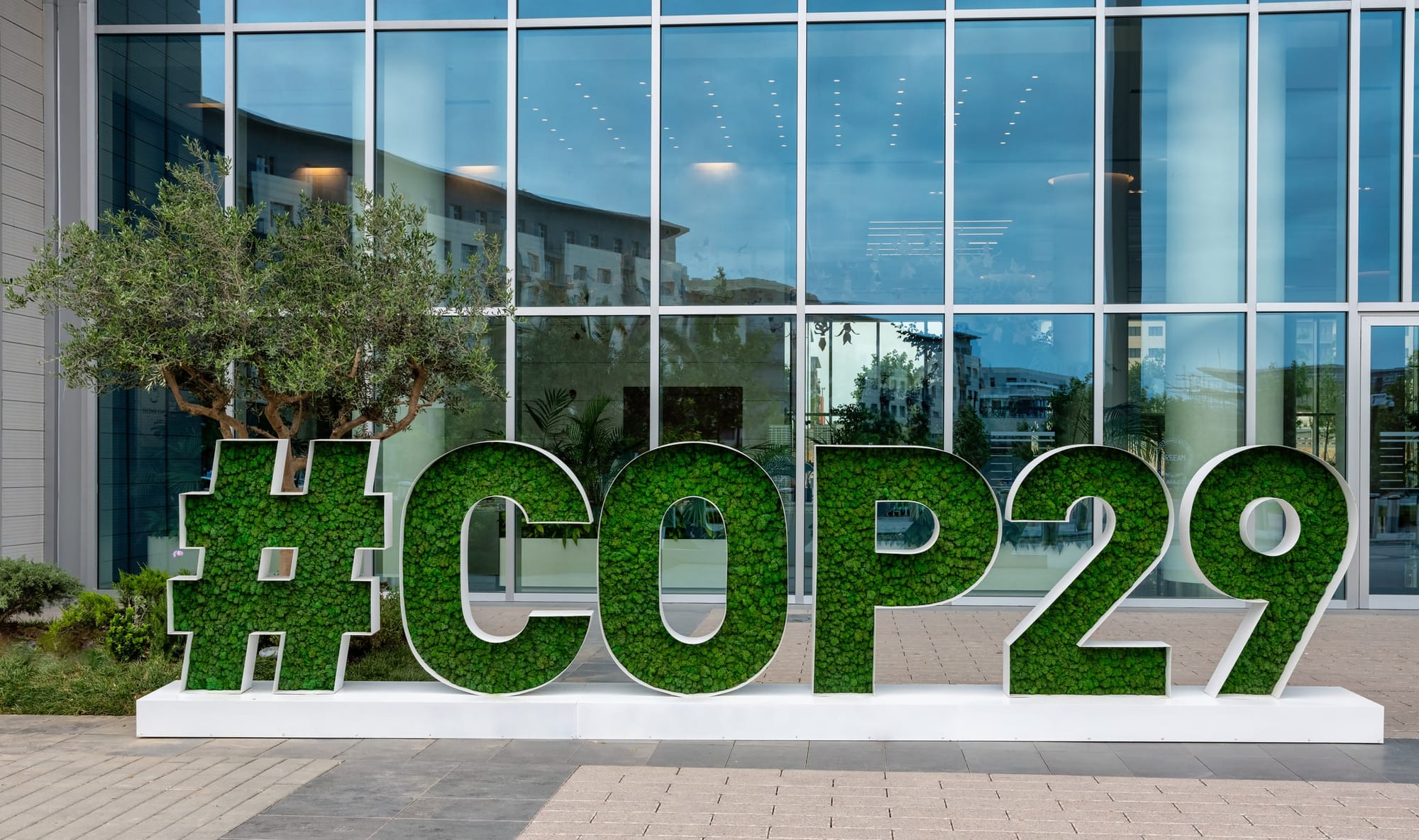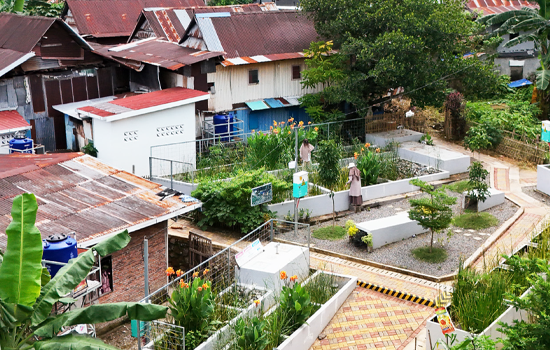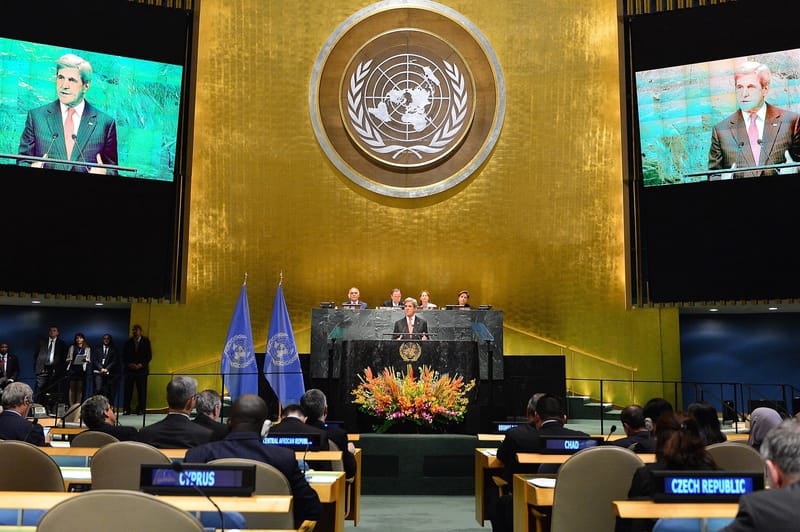
Since the first climate Conference of the Parties (COP) in 1995, lesser-developed countries (LDCs) and, in particular, small island nations have been arguing that environmental justice mandates that rich states owe the poorer nations a “moral debt” when it comes to the damage caused by anthropogenic climate change, since they benefited from carbon for more than a century to build their successful economies.
At that first COP, held in Berlin, Vanuatu called initially for an “insurance fund” to be created to help poorer countries ameliorate climate damage, but their plea was ignored.
In 2009, wealthy states agreed to provide $100 billion a year by 2020 in funding to LDCs to help climate-proof their societies, but that figure is almost universally acknowledged as insufficient, and even then, that goal wasn’t met until 2022.
This year’s COP29, in the petrostate of Azerbaijan, was meant to be the meeting where the financial needs of LDCs were finally addressed. Economists have estimated that the monies needed by such states to successfully transition to a low-carbon economy annually need to be in the order of $1.3 trillion per annum.
Activist groups had argued that, given historical responsibilities for the climate crisis, $5-7 trillion annually was the appropriate sum. Instead, the initial offer was merely $250 billion a year, with the wealthy states arguing that was the maximum they could afford, given other domestic priorities and global instability.
The G77 states argued this was patently insufficient, while the Alliance of Small Island states called it unacceptable.
Wafa Misrar, from Climate Action Network Africa, stated:
“[This is] a profound disrespect to the people on the frontlines of the climate crisis – those losing their lives, homes and livelihoods every day. It is disheartening to witness the lack of commitment from Global North countries, who seem willing to disregard our realities.”
The Global Campaign to Demand Climate Justice said there were growing calls for a walkout, and that “no deal is better than a bad deal”.
By Thursday of week two, a draft text declared that LDCs would receive at least $1.3 trillion a year in climate finance by 2035. However, the devil, as always, was in the details.
Poorer states noted that the majority of the funds were to be disbursed as loans, whereas they wanted it to be given as grants. The Alliance of Small Island States (AOSIS) and the LDCs were so incensed by the offering that they walked out of one meeting in protest late on Saturday afternoon, but later returned to proceedings.
Deal a ‘betrayal’
By early Sunday morning a deal between the almost 200 states was hammered out that would see the LDCs get the promised $1.3 trillion by 2035. But in what campaigners labelled a “betrayal”, only $300 billion of that will be in the form of grants and low-interest loans.
The remainder will have to come from (unlikely) private funding and new, yet-to-be-agreed to measures such as potential levy on fossil fuels and frequent flyers (sometimes referred to as a “Tobin tax”, named for the economist who first proposed it).
Mohamed Adow, director of Power Shift Africa stated:
“This [summit] has been a disaster for the developing world. It’s a betrayal of both people and planet by wealthy countries who claim to take climate change seriously. Rich countries have promised to ‘mobilise’ some funds in the future, rather than provide them now. The cheque is in the mail. But lives and livelihoods in vulnerable countries are being lost now.”
Given that United States president-elect Donald Trump takes office in January, and is highly likely to be hostile to any climate funding, states were not willing to defer the matter until COP30 and risk no monies being allocated.
One negotiator noted that without the US, “we will shoulder all the risk”.
Some LDCs saw the offer as demeaning, with India’s representative Chandni Raina criticising the offered monies as a “paltry sum”, and furiously characterised the agreement as, “nothing more than an optical illusion”, with developed states unable to “address the enormity of the challenge we all face”.
NGOs highly critical
Environmental non-governmental organisations were also scathing of the agreement, with Claudio Angelo, of the Observatorio do Clima in Brazil, trenchantly noting that:
“Rich countries spent 150 years appropriating the world’s atmospheric space, 33 years loitering on climate action, and three years negotiating [a financial settlement] without putting numbers on the table.
“Now, with the help of an incompetent COP presidency, and using the forthcoming Trump administration as a threat, they force developing countries to accept a deal that not only doesn’t represent any actual new money, but also may increase their debt.”
India, arguing it couldn’t accept the offer, raised last-minute objections, but failed to prevent it from being gavelled through by the COP president, Azerbaijan’s environment minister Mukhtar Babayev.
Juan Carlos Monterrey Gómez, Panama’s special representative for climate change, argued that:
“I think 1.5°C was at the intensive care unit, and it feels like that bed just broke and it fell on the floor. So we’re probably not going to be able to reach 1.5°C based on this very low level of finance being provided by the developed world. That means death, that means misery, for our countries.”
He went on to argue that LDCs were forced to accept the deal offered, since the COP is the only forum where they can attempt to redress their concerns and seek the desperately-needed monies.
As Tasneem Essop, of Climate Action Network, observed:
“This has been the most horrendous climate negotiations in years due to the bad faith of developed countries. This was meant to be the finance COP, but the Global North turned up with a plan to betray the Global South.”
For the LDCs looking for the developed states to acknowledge their environmental justice claims with commensurate equitable funding, the wait will continue for at least another year.
Monash is pioneering a path to a greener, smarter, more equitable and sustainable future, where emissions are lower, and the natural environment and humans thrive. We look forward to participating at COP29, where we aim to accelerate global action on sustainability, empowering diverse voices from across the Indo-Pacific and influencing superior policy outcomes across a broad range of issues. Find out more monash.edu/cop29





